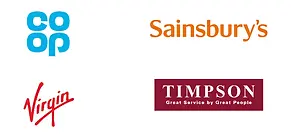To advocate for something means to publicly support it.
It is a sad truth that those who have been convicted of a crime, and their families, are often demonised by society. Many would view them as less deserving and not as a ‘vulnerable’ group who need to be advocated for. Though as an Employer Advisor or Work Coach, you probably recognise this is not the case; advocating for vulnerable groups is about giving everyone equal opportunities.
Yes, someone who has a criminal conviction has been convicted of doing wrong by society, but without society’s support it is very difficult for them to make amends for the harm they may have caused.
We want everyone to have the opportunity to turn their life around and contribute to society.
A sentence for life.
A criminal conviction can be seen as a sentence for life because unless the conviction becomes spent as previously discussed, the individual will carry the weight of that conviction with them through all paths of life from housing to employment.
Part of rehabilitating from a criminal offence is
-
reintegration into society
-
reducing the possibility of recidivism which is also known as reducing re-offending.
Having employment gives an individual a sense of purpose and it gives them a means for living to pay rent or bills, so they have more opportunities outside of criminal or anti-social behaviour. It also allows the individual to re-frame the perception society has of them post-conviction. Employment brings with it a sense of belonging.
If an employer has two applications in front of them with equal qualifications, but one application notes that the candidate has a criminal conviction, some employers’ knee-jerk reaction would be to go for the candidate who has no history of a criminal conviction. This is where Employer Advisors and organisations like Offploy can spring into action. Employer Advisor teams can advocate for the customer and encourage employers to look past the conviction, not to perceive it as a risk but to focus on a candidate’s strongest qualities.
This table from Unlock gives a overview of how the different stages of your journey with the criminal justice system can effect key areas like employment and getting insurance.
Myth-busting
Part of this advocating for the customer will involve myth busting. We must try to change the way employers view those with criminal convictions. The best way to advocate in this way is to be armed with knowledge about your candidate and statistics about people in similar situations. Knowing your customer and their history is key to selling the idea of them to an employer.
-
If an Employer is averse to hiring people with convictions, it is usually due to their perception of our cohort based on what they see in the media. We have found the best way of overcoming this hurdle is offering a no-pressure meeting / opportunity to interview the Customer – it may even be just one interview slot as part of a wider recruitment day you coordinate for the employer.
-
Recruit! is a website for employers who are supporting the fair treatment of those with criminal convictions. This article of theirs gives a quick snapshot of the most common myths employers have about those with criminal convictions
-
-
We have found the most success in organising Prison “Away Days” for a small group of employer decision makers to volunteer in their local prison for a half day.
-
This may be working in the kitchen, gardens or education department.
-
We ensure all partners are aware that this is to support the employer to consider hiring people with convictions
-
There is no pressure to offer any roles from this initial dipping of the toe.
-
Pairing this with delivery from someone with lived experience and quality ex-offender-specific HR advice goes a long way.
-
Get in touch with Offploy if you would like more advice on organising a ‘Prison Away Day’.
-
-
It can be helpful to explain that criminal convictions can be anything from a driving offence to an imprisonable offence.
-
It is useful if employers are encouraged to consider candidates on circumstance and not on conviction.
-
Another means of myth busting is explaining how common criminal convictions are. For example, it is estimated that over 12 million people in England have criminal convictions.
As a Work Coach, it will be both beneficial for you and for your customer to be aware of what employers promote being an equal opportunity employer for any protected characteristic.
-
This can be easily found on websites like LinkedIn where companies will advertise that they are proud of their ‘diverse’ work force and they strive for ‘inclusion’ and ‘equal opportunities’. These are the buzzwords to look out for.
-
You could even start with those who are registered as Disability Confident with the DWP.
-
Companies like Tesco advocate and are known for hiring people living with a disability.
-
There are employers who are known for giving individuals with criminal convictions a fair chance. Big companies like:
A list of companies open to hiring people with criminal convictions can be found here.
There are also employers who will not ask about criminal convictions at the application form stage – these are known as Ban the Box employers. You can download that list here.

